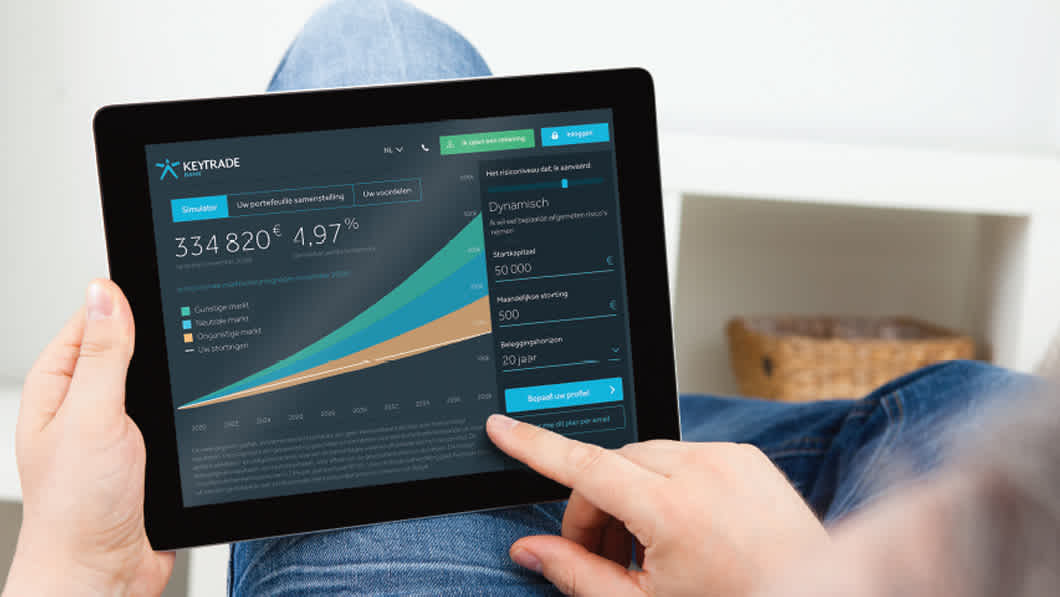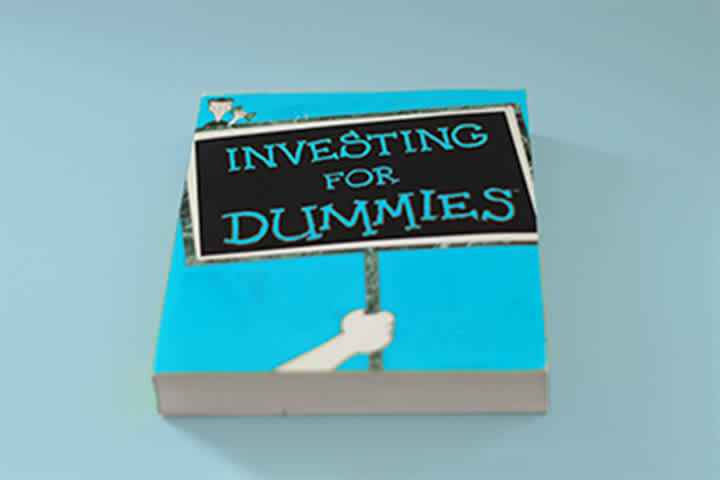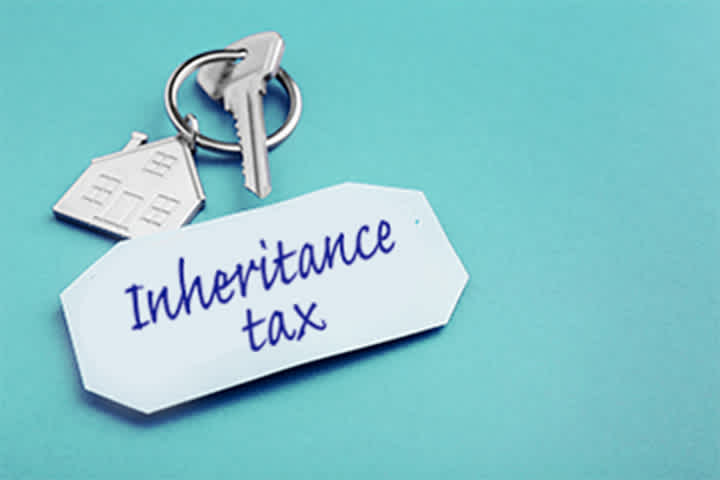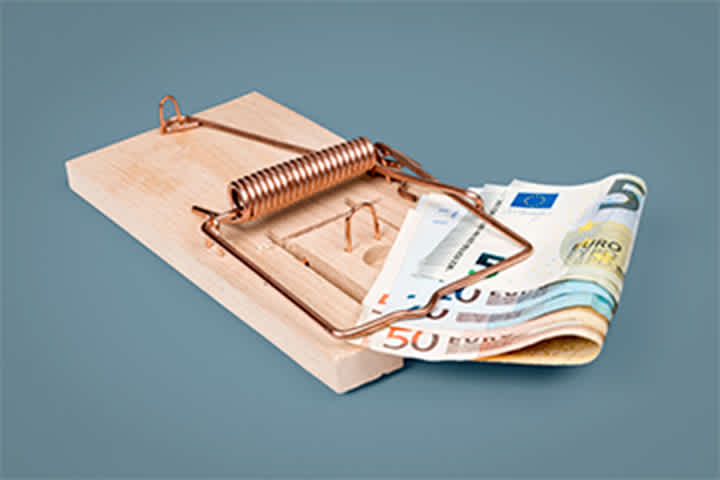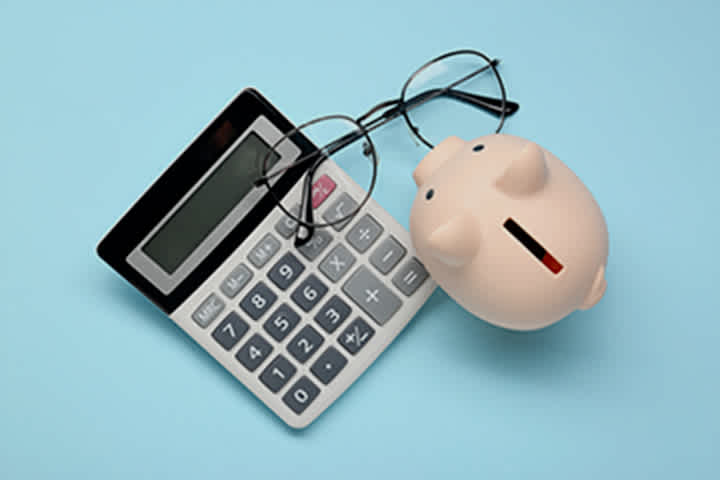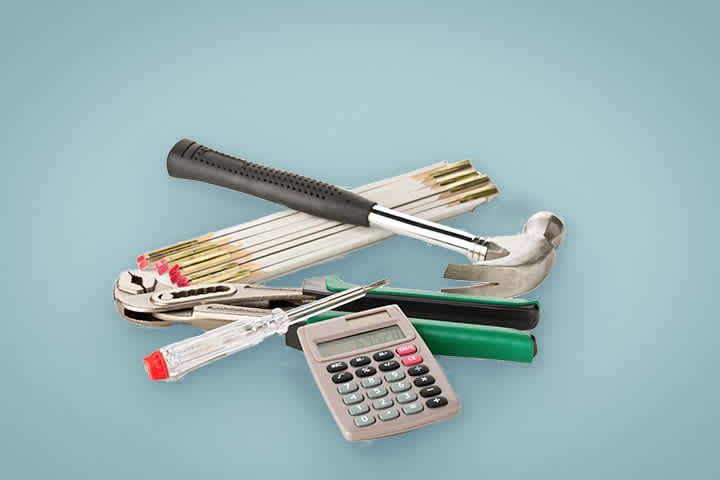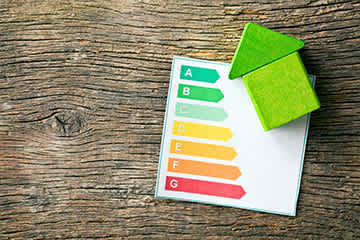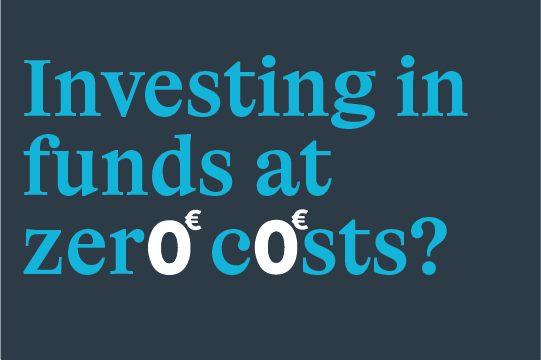How to protect your capital in the event of a divorce
Keytrade Bank
keytradebank.be
September 07, 2019
7 minutes to read
A divorce brings stress and sorrow. Amidst all the tensions and emotions, there are also financial worries. Will my income be sufficient? What will happen with the loan for the solar panels on our roof? And what about our joint investments?
Even if today, the financial aspect is the least of your worries, it will no doubt become important for you again in the future. It may make a significant difference if you take precautions to protect your assets now, and will become apparent if you later decide to take out a new loan, buy a car or start a new future elsewhere, for example. Protecting your assets during a divorce is easier than starting again from scratch after one. We've put together a step-by-step plan to help:
Step 1: Negotiate and communicate in an open manner
If, during discussions about who gets what, you do act not in a greedy, but in a generous, way, there is a greater chance that your ex will make things easier, too. Doing so can save both parties large amounts of money. If both partners want every last cent, it can be harmful for both parties – both financially as well as psychologically. It is also very possible, from a purely objective point of view, that you will have to be satisfied with somewhat less money. But perhaps you’ll have greater peace of mind, which is surely worth a lot.
Do you think an open discussion has little hope of succeeding? If so, think about engaging a lawyer, mediator or divorce planner together, which would cost significantly less than each of you hiring your own lawyers.
Step 2: Gather all the pieces of the puzzle and carry out a review
In order to have a complete overview of your personal and joint financial situation, you should make sure you take all the ‘paperwork’ with you. This includes account statements, payslips, tax letters, pension documents, deeds and so on. Once you have everything neatly arranged, ask yourself these four questions:
- What do we have together (and separately)?
- What do I earn?
- What debts do we have together (and separately)?
- In which regime are we married?
The two most common matrimonial property regimes
1. The statutory regime
Here, there are three assets, your assets, your ex-partner’s assets and your joint assets.
Each spouse retains, among other things, what he or she:
- owned before the marriage;
- inherited or received;
- bought with his or her own money (owned before the marriage or inherited/received during the marriage).
Included among the joint assets are:
- items that you bought together with your ex-partner during the marriage;
- professional incomes;
- income from joint property;
- income from own property (rent, interest).
Debts are divided in a similar way: there are personal debts for each spouse as well as joint debts (if you have a joint loan, too, there are still individual obligations to repay the loan in the event of a divorce). In the event of a divorce, each spouse may keep his or her own property while joint property must be divided. In this regard, there is supposition in favour of joint assets. This means that a partner who claims that a particular item (such as an investment, a classic car or a painting) is part of their own property, must also prove this is the case. Finally, with a marriage under this regime it is no easy task to unpick each thread from the financial mess. Or as a Dutch cabaret duo once sang: “Your CD, my CD. Our CD, but received from my mother, so it's mine.”
Should you reach an agreement (by way of a balancing payment from the spouse who receives more valuable items, for example), distribution is relatively straightforward. If no agreement can be reached, other options are available, including intervention by a court or even a public sale or auction of joint property.
2. Regime of separation of property
In a regime of separation of property, there are two assets: those of one spouse and those of the other spouse. No joint assets exist. Each spouse remains the owner and manager of their own property and income. Items bought together by the spouses belong to them both indivisibly. Each spouse also remains liable for their own debts, with the exception of normal household debts. In a regime of separation of property, the actions to be taken are somewhat easier. The indivisible items must be distributed and certain settlements usually take place. Either the partners agree that one of them acquires the indivisible items – the acquiring party pays the other party a sum in this regard – or the items are sold, often at a public sale or auction.
Step 3: Draw up a budget
All economies of scale that those living together have, whether they concern housing taxes, insurance or groceries, no longer apply when you then live alone. That's why it's best to draw up a budget, or at the very least an estimate of your financial future in the short and long-term. How much could you set aside for legal assistance? What will your spending patterns look like? What is essential and what is a luxury? Will your income be sufficient? What are the financial consequences of your divorce? And so on.
While on the one hand you may well have more costs, it may also be the case that new ‘sources of income’ become available. Once you go your separate ways, you may be entitled to supplements or tax breaks if you stay single. In a divorce, an ex-partner may also be entitled to alimony or maintenance. According to the law, both parents must contribute to the costs for food, education and housing for their children. In this case, we talk of child maintenance. In addition, partner maintenance also applies. This means that the partner, who is in a worse financial position, receives maintenance from their ex. This may be the case when there is a large difference between both partners’ incomes, for example.
Besides drawing up a short and long-term budget, you should also take a look at your savings reserve. If you will be on your own, it is useful to set aside a larger buffer. Also check the consequences the divorce may have on your pension, for example via MyPension. The same applies for your investment profile and the risks you wish to take. In anticipation of greater financial security, it could be useful to make more defensive investments on a temporary basis.
Step 4: Make a decision on the family home
If the home is part of the joint assets, you should ask yourself whether you can afford to maintain it. If not, you should consider selling it. Doing so would allow you to free up funds to make a fresh start.
Generally speaking, you have four options:
- Sell the property
- Keep the property in indivisum (or potentially rent it out)
- One of the spouses buys the other out
- Gift the property
If one of the spouses continues to live in the property while awaiting a sale, you should agree on how the costs should be borne.
SOS bank account emptied
You're not fully over the emotional reaction, and you discover that your spouse has emptied the joint account. What now? In the best-case scenario, the intentions are well-founded. Your ex-partner wishes to hold the money in trust to make sure that you don't harbour bad intentions, either. Mutual trust may well have disappeared entirely and your ex-partner has opted for certainty ahead of uncertainty. But what if the intentions are less positive? With the statutory regime (see above), spouses are authorised to manage their joint assets on an equal footing. Each spouse may, without informing – or the consent of – the other partner, withdraw or transfer money without being held accountable.
The problem comes, of course, when one spouse empties the joint account one day and then delivers the subpoena for the divorce the next. And when there is a liquidation and distribution of the joint assets further down the line, it is always the date of the subpoena or deposit of the application that applies to all settlements. Thankfully, you can prevent the money from disappearing. Although both spouses may empty any joint accounts, they must always manage the joint assets in the best interests of the family.
If one of the spouses empties all the accounts, that may well not be in the family's interests. In that case, this spouse must demonstrate that the money has been used in the family’s interests.
Saving and investing for your children after a divorce: what now?
You're divorced, but still saving or investing for your children? That's great. But is it also feasible in practice? Definitely
- If you want to invest for your children, periodic investments provide an interesting option. This can be done from 25 euros per year – all you both need to do is open a KEYPLAN and name your child as the beneficiary. Once you have both opened a KEYPLAN, click on ‘Amend KEYPLAN’ and inform us of your child’s name, date of birth and the transfer date from which you wish to transfer the KEYPLAN to him or her. The beneficiary must be at least 18 years old on the end date.
- Do you want to save for the children? Then all you both need to do is open a separate account for each child.
Other articles that might interest you
![blogHeader-SchenkingRegistreren]()
Gifting money: register or take the risk?
![blogHeader-USRecession]()
Will there be a recession in the US?
![blogHeader-cruise]()
As cruise companies gather steam, are their shares doing the same?
![iPad]()
Monthly video 2025
![blog-InvestingFor]()
A beginner's guide to buying shares in five steps
![blogHeader-Tesla]()
Is Elon Musk about to crash Tesla shares?
![blogHeader-RIP]()
Your family member dies: how to manage their banking
![GraphOfTheWeek]()
American optimism reversing: time to head for the exit?
![blog-Mag7]()
Have the Magnificent 7 lost their magic?
![blogHeader-GeldLenen]()
Lending money to family or friends: do you have carte blanche?
![blogHeader-kostenAamkoo]()
What costs are involved in buying a home?
![Defensieaandelen]()
An investment guide to Europe's military resurgence
![blogHeader-EuropeseBank]()
Are European bank stocks experiencing a renaissance?
![blogHeader-Aristo]()
Dividend aristocrats: a good beginner investment strategy?
![blogHeader-obesity]()
Has the obesity trade peaked?
![blogHeader-tax]()
Capital gains tax: who can escape and who will pay?
![iPad]()
Monthly video 2024
![blogHeader-SmallInvest]()
Investing when money is tight: being ambitious pays off!
![blogHeader-DeepSeek]()
How to invest in AI after the DeepSeek bomb
![Blog-Header-Invest?]()
What is investing, and why is it an option for you?
![blog-zorgvolmacht]()
12 questions and answers about a lasting power of attorney
![blog-inheritanceT]()
What if you are unable to pay the inheritance tax?
![blogHeader-GeertVanHerc]()
Investors missed out on many great opportunities in 2024
![BlogHeader-FiscaalVeranderingen]()
Dividends, (pension) savings and tax-free income: what's new in 2025
![blogHeader-Trap]()
What you need to know before you start dividend investing
![blog-ouderKoppel]()
40 years of pension savings: what will you spend it on (literally)?
![blog-AstroMars]()
From FOMO to ZERO bank account? 5x pension savings to the rescue
![blogHeader-vastgoedInve]()
10 tips for the novice property investor
![pension pilars]()
Start growing your pension sooner rather than later
![blogHeader-bestchoicesP]()
Pension savings returns: these choices give the maximum payout
![blogHeader-MonthlySavin]()
What monthly pension savings for a maximum return?
![blogHeader-VrouwenPensi]()
Why pension planning is even more important for women
![Woman lying down in a hamac on a terrace]()
Passive investing: less effort for a better return
![blogHeader-americaFirst]()
United States 1, Everyone Else 0
![blogHeader-retiredVersi]()
What would the retired version of you say to yourself?
![blogHeader-renteloos]()
Which loan is the best fit for your renovation project?
![blogHeader-1KeerBeleg]()
Lump-sum investing vs cost averaging: which offers the highest return?
![blog-whenInvest]()
When should you start investing? Seven potential key moments in your life
![blogHeader-Fire]()
FIRE: how hot is this financial trend and how does it work?
![Newspaper with ETF's circled in red, a red pen and a magnifying glass on top]()
What is a tracker and how do you choose the right one?
![Blog-header-sleepingAccount]()
Do you have a dormant account? This is how you can check!
![GraphOfTheWeek]()
A potential worldwide trade war is claiming European victims
![blogHeader-animals]()
Ever thought of investing in the pet industry?
![GraphOfTheWeek]()
Have long-term interest rates once again started a 40-year uptrend?
![blog-header-USElection]()
Democrats or Republicans: which party is better for your investments?
![blog-spaargeld]()
Guide: how much you need in savings
![GraphOfTheWeek]()
Graph of the Week: Magnificent 7 vs 2000s Tech Bubble
![Active ETF]()
Actively managed ETFs: the best of both worlds?
![GraphOfTheWeek]()
Investing at new highs is an elevated idea
![blogHeader-InvestFood]()
6 reasons to invest in food
![blog-ZonderGeldzo]()
Checklist: travel without any money worries
![untaxed-side-jobs 1913883895]()
Untaxed side jobs: what is allowed and what is not (any more)?
![IT]()
Who's who at Keytrade Bank? Who answers the phone when you call us?
![IT]()
Who's Who? Visiting IT
![blog renovationLoan]()
Taking out a loan for energy-saving renovations: what are your options?
![student-room 262331855]()
Would it be better to buy a student room than rent one?
![house-flipping 330509387]()
House flipping: is it worthwhile?
![vix 1827107540]()
Investing in dividend shares: what to look for?
![friends-cheaper-travel 1680186190]()
What your friends forgot to tell you about cheaper travel
Investing in football shares: what's the score?
![blog-Basisrente]()
Basic interest rate and loyalty bonus: what does your savings behaviour say about you?
![blog-kleinkindHel]()
Helping your (grand)children to buy a home: what are the options?
![blog-dividentenRe]()
Why high dividend yields can be a poisoned chalice
![blogHeader-SpaarrentenV]()
Comparing savings accounts: where do you put your money?
![blogHeader-WeinigTijd]()
3 ways to invest when you don't have much time.
![blogHeader-ChinaBelegge]()
Is it time to invest in Chinese stocks again?
![Graph of the week]()
Europe is no longer falling behind!
![blogHeader-fondsKiezen]()
How do you select an investment fund for your child?
![blogHeader-Veilig onlin]()
Secure online banking: how can you protect your finances?
![blogHeader-SparenVoorKi]()
How can I invest or save better for my child?
![blogHeader-Online reken]()
Opening an online bank account: what is holding you back?
![trackers capi-distri]()
The difference between distribution and accumulation for funds or trackers
![blogHeader-TauxInteretB]()
Will ultra-low interest rates make a comeback? Probably not…
![blogHeader-S&P500]()
Why the S&P 500 does and does not have a problem
![blogHeader-Robotica]()
Robotics: From science fiction to science
![blogHeader-Vastgoedaand]()
Property shares: ripe for a comeback?
![Investment fraud]()
How to recognise investment fraud
![blog-geldMarktFon]()
Are money market funds an attractive investment?
![Graph of the week]()
Is joining the BEL20 actually good for you?
![blogHeader-HogereRendem]()
Is it the right time to invest in bonds?
![blogHeader-EersteHulp]()
Stock market records: some down-to-earth advice on how to respond to dazzling heights
![blogHeader-PeriodiekBel]()
Have you ever thought about investing for your children?
![blog-tweedeLening]()
Borrowing for a second home: what are your options?
![Graph of the week]()
Can we still say "Magnificent Seven"? Or should it be "2 Unlimited "?
![Blog-VoyageMars]()
How can you invest in space travel?
![blogHeader-ZelfOfLaten]()
Invest yourself or have someone do it for you: do you have to choose?
![Blog-Loan]()
How much can you borrow for a home?
![tell-tax-man 1044303100]()
What do you have to tell the tax man about your money and investments?
![protect-phone 1134627548]()
How do you protect your smartphone from hackers?
![iPad]()
Monthly video 2023
![myth-sustainable 1059639044]()
Five myths about sustainable investing
![Blog-Viellissement]()
How can you invest in an ageing population?
![Image article small caps]()
Small company shares with big opportunities?
![panneaux solaires]()
6 reasons why installing solar panels is still worthwhile in 2024
![Blog-Vote]()
How do elections affect the stock market?
![blog-holding]()
8 questions and answers about holding companies
![Picture article gold]()
Golden days? Why to invest in gold (or not)
![blog-aLouer-TeHuu]()
Is a buy-to-let property a smart investment?
![blog-marchéAfrica]()
Nigeria: a new hot spot for adventurous investors?
![roerende voorheffing]()
Exemption from withholding tax on dividends
![Seasons greetings]()
Looking back on 2023
![Photo article challenges stock investor]()
Will bonds beat shares in 2024?
![emerging markets 2]()
Investing in emerging markets: are investment funds a smarter buy than trackers?
![blog-short]()
Shorting: what is it and how does it work?
![blog-goldenRules]()
The 10 principles of stock market success
![payer sans contact]()
The advantages and disadvantages of contactless payment
![padel header]()
Good positional play is important!
![hacker cat]()
How to put phishers out of a job
Which sectors should remain overweight following the latest rate hike?
![KNEWS 2307 Padel]()
Padel has got a new doubles partner with Keytrade Bank
![8 tijdloze regels]()
8 timeless rules for investors
![Biodiversity]()
Investing in biodiversity: can Wall Street save the rainforest?
![blog-DigitalHerit]()
Don't forget to make arrangements for your digital estate
![Investors, keep your emotions in check!]()
Investors, keep your emotions in check!
![How natural disasters affect the economy and the markets]()
How natural disasters affect the economy and the markets
![blog-blended family]()
Money management in a new blended family: a step-by-step plan
![myth-sustainable 1059639044]()
Make an impact with your Keyprivate
![Inheritance letter on a table with glasses and pens on top of it]()
It is impossible to disinherit your child in Belgium: fact or fiction?
![Mortgage Wallonia]()
New reductions in stamp duty for home buyers
![economy-dip 1912291450]()
What is the difference between a tracker and a fund?
![PEB]()
Don't forget to include your EPC in your credit application
![InvestissementDefensif]()
“The headwinds should ease up in the second half of 2023”
![BonGrainIvraie]()
“More chaff will be separated from the wheat on the stock exchanges”
![840000€ Bonus]()
2022: 840 000EUR in bonuses and (a higher interest rate on your savings account)
![Visa Platinum on Silvery Background (top block)]()
6 things you need to know about your Keytrade Bank credit card
![iPad]()
Monthly video 2022
![keytrade-nature-trail 474489556]()
A Keytrade Bank Nature Trail? Yes, please.
![MUCE]()
Museum of Circular Economy: what’s next?
![equity-investors-economic-data 1891162513]()
A recession and yet the markets are going up?!
![AchatPensionComp]()
How to buy real estate with your supplementary pension (even though you have not retired yet)
![Product Owner of our Data Department, Damien Hegarty]()
Who's who at Keytrade Bank? Data first
![Funds for free]()
Less costs? Yes, please.
![donate-to-charity 1854854632]()
How can you donate or leave a legacy to a charity?
![close-possible-staff 69329]()
As close as possible to staff
![belgian-traders-american-stock-market-rush-reddit]()
Belgian traders tempted by American stock market rush and Reddit investors
![keytrade-nature-trail 474489556]()
A Keytrade Bank Nature Trail? Yes, please.
![esg-rating 1169454484]()
How do you find out what a company’s ESG rating is?
![esg-alphabet]()
ESG's alphabet
![green-investing 1324554443]()
With or without the coronavirus: why green investing remains just as relevant as before
![impact-investment 1820196929]()
Impact investing: sustainable investments with that little bit more
![sustainable-investing 1613013514]()
Sustainable investing: what, why and how?
![inflation-savings 1051141721]()
This is what the tax authorities know about your money
![vix 1827107540]()
Investing in dividend shares: what to look for?
![Geert Van Herck]()
Monthly video 2021
![stop-loss 2063917100]()
No group insurance plan? What are the alternatives?
![global-world-index 289143614]()
Could there be a little more of using a little less?
![investment-style 2045763443]()
Which investment style and which regions would benefit from renewed growth in interest rates?
![rising-star 441848857]()
Which shares will be the rising stars once interest rates start increasing again?
![co-housing-rules 1613595520]()
Cohousing rules
![baby-on-way 1095110102]()
Baby on the way? Make sure your finances are ready for it, too
![buffet-bezos-musk-p-KCm6xB9I-unsplash]()
The halo effect: why we are buying the shares of Buffett, Bezos and Musk
![investing-for-your-child 1340966087]()
Why investing for your child is a good idea
![timing-is-everything 390959932]()
Timing is everything: how to choose the right time to enter the stock exchange?
![iPad]()
La technologie préserve les investisseurs contre l'utopie
![protect-money-hackers 1859124007]()
How to protect your hard-earned money from hackers
![include-grandchildren-inheritance 1009930174]()
How to include your grandchildren in your inheritance planning: 8 questions and answers
![micro-caps 516415369]()
Why (not) invest in micro-caps?
![safe-contactless 1931956346]()
How safe are contactless payments?
![rent-or-buy 1568837434]()
Rent or buy? How to use the price-to-rent ratio
![balance-investment 604545992]()
What do I do to balance my investments?
![treacherous-stock-market 1033103887]()
The treacherous stock market
![society-without-cash 1932714896]()
On the way to a society without cash?
![second-hand-online 571885318]()
A must read for when you spotted a second-hand bargain online
![math-stock-market 68612446]()
Maths on the stock market
![handiest-financial-apps 1008711622]()
The handiest financial apps (and free as well)
![global-world-index 289143614]()
Are you investing really globally with a tracker on a world index?
![equity-investors-economic-data 1891162513]()
Equity investors look beyond gloomy economic data
![7-investment-themes 272484338]()
7 investment themes for 2029 (for which you can get a head start already)
![10-rules-lifelong-success 1761072161]()
Ten basic rules for lifelong success on the stock market
![economy-dip 1912291450]()
Any dip in the global economy appears to just a passing blip!
![end-year-rally 1310382322]()
Are we heading into a year-end rally by the stock markets?
![coronablog 1670847745]()
Coronablog de Geert Van Herck: La panique atteint des sommets… énième épisode
![seven-myths 1756375427]()
Seven investment myths
![blended-family 1563671599]()
Blended family: shared savings account or keep things separate?
![first-aid-admin 2082725440]()
First Aid for Your (Financial) Administration
![gift-inheritance 1661226916]()
Gift or inheritance: which is the most tax-efficient?
![offer-property 1982828150]()
Making an offer on a property: what should you look out for?
![us-dominance 1664904235]()
US stock market dominance not coming to an end yet!
![trackers-bubble 533763148]()
Are trackers the latest bubble on the financial markets?
![msci-emerging 129310280]()
Will the MSCI Emerging Markets index become the next big thing?



